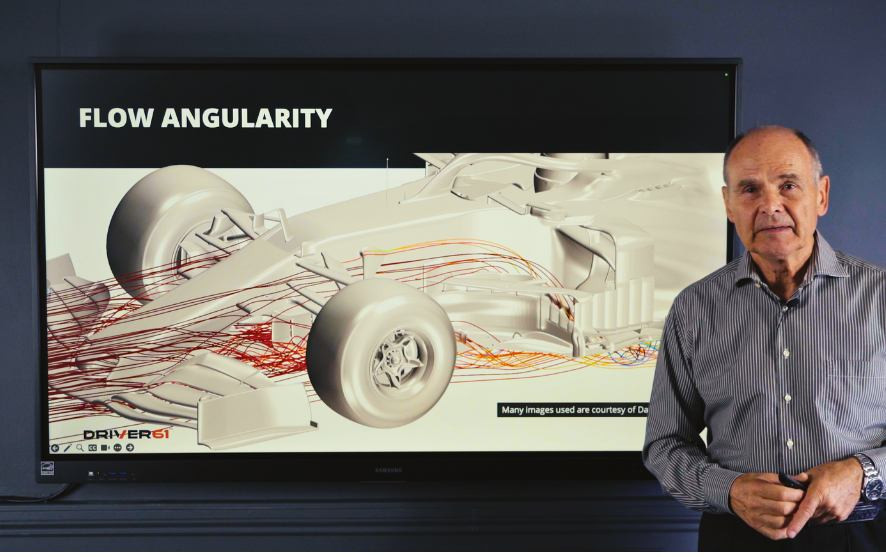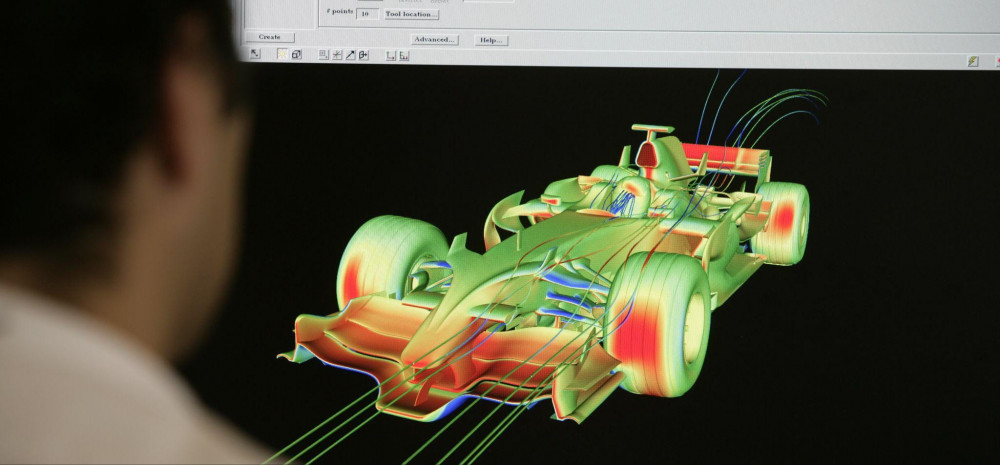Featured Image: ImechE
The world of motorsport is fast-paced, high-pressure and competitive in the extreme
Put frankly, it's not for everyone, and the dream of working in Formula 1 or other top-tier championships seems like just that - a dream.
However, with the right preparation, skills, and mindset, turning this passion into a profession is achievable.
My article will guide you through the essential steps to prepare for a career in motorsport, drawing insights from industry experts and those who have successfully made the journey.
Understanding the Motorsport Industry
Before diving into your career preparation, it's crucial to understand the breadth and depth of the motorsport industry. As I've pointed out before in my video guide on how to get a job in motorsport, The entire motorsport industry is much, much bigger than just Formula 1. This is something we really came to terms with as the results from our in-house career and employer survey came in:

Motorsport. It's a huge industry. The FIA states that there's 1.5 million paid motorsport jobs globally. This is broken down into 576,000 direct and 924,000 indirect jobs. And, it's not all F1.
These roles span across various racing series, from karting to endurance racing, and include positions in professional teams, governing bodies, event organizers, and related industries like race car and parts manufacturers.
As you'd quite expect, Formula 1 does lead the pack.
20 to 25% of F1 staff work in design and aerodynamics, 15 to 20% in mechanical and electrical engineering, 10 to 15% in data analysis, 15 to 20% in manufacturing and production, 10 to 15% in race operations and pit crew, 5 to 10% in logistics and transport, 3 to 10% in roles like marketing, PR, sponsorship, HR, finance, and legal, and 3 to 5% in media and communication roles.
This surprises people, I think. Just because you work in Motorsport doesn't necessarily mean you're changing wheels in a pit stop every weekend,
Identifying Your Motorsport Career Path
With such a wide array of roles available, it's essential to identify which area of motorsport aligns best with your skills, interests, and career goals. Todd Jack Hooker, former head of talent at Williams F1, emphasises the importance of self-reflection in a FluidJobs seminar:
F1 HR Manager Reveals How to Get a Motorsport Job
"What I mean is what is your motivation for doing this? You know, what people want to work in motorsports, but what is the burning desire? You know, if you're an engineer, was it because you used to take apart toasters when you were younger and you're fascinated about how they work?"
Hooker suggests asking yourself several key questions:
Understanding your 'why' is crucial not only for your personal satisfaction but also for standing out in applications and interviews.
As Hooker notes,
"If you understand what you're trying to get out and what your reason for doing what you do is, it really helps during the process."
Building Foundational Knowledge
Once you've identified your preferred discipline within motorsport, it's time to acquire necessary knowledge base. For many technical roles, a strong academic background is essential.
Engineering degrees are common, particularly for roles in aerodynamics, vehicle dynamics, or powertrain development. Expect a high competence in Mathematics, data science and python/ programming experience. These are standard features in a modern Engineering degree.
However, the specific requirements can vary depending on the role. As highlighted in the TameAero blog post on F1 job interviews, for aerodynamicist positions, a deep understanding of fluid dynamics principles is crucial.
The post mentions specific topics that might come up in interviews:
"Basic Aerodynamics: what are the lift/drag coefficients? What happens in a Venturi and why? What are the implications of viscosity/turbulence within a flow with respect to boundary layers, separation/attachment, heat transfer?"
For roles in data analysis or software development, strong programming skills are often required. Marketing or media roles might require degrees in related fields, along with a deep understanding of the sport.
Regardless of your specific role, a broad understanding of motorsport technology and the regs is vital. Stay updated with technical publications, attend webinars or lectures when possible, and follow reputable motorsport news sources.
Gaining Practical Experience
While academic knowledge is important, practical experience is often what sets candidates apart. If you have some skills, if you're a helpful person, and if you're willing to get involved, I promise some of these teams would love to have you there.
Here are some ways to gain valuable experience:
1. Formula Student
If you're at university, joining a Formula Student team can provide hands-on experience in designing, building, and racing a single-seater car. Many employers specifically look for this experience.
Formula Student is a strong entry route into Motorsport, So many of the employers I've spoken to mentioned Formula Student."
2. Volunteering with Local Teams
We've written about this point a lot. You need to be present and willing.
Keep on picking up the phone and sending emails and start with the smaller national level race teams. You'll be surprised by how many of them would like an extra pair of hands at the weekend. If that doesn't work, just turn up (on a test day) and ask!
3. Internships and Apprenticeships
Many motorsport companies offer internships or apprenticeships. These provide valuable industry experience and can often lead to full-time positions. I've written a guide to helping you get your foot in the door as an intern in this article.
4. Personal Projects
Undertake personal projects that demonstrate your skills and passion. This could be anything from analyzing race data to building a racing simulator.
Networking in the Motorsport Industry
Networking is crucial in the motorsport industry. As Mansell points out, "We're lucky with a lot of the lower series that they have open paddocks and you can walk around and you can meet teams and get your name out there."
Here are some effective networking strategies:
1. Attend Motorsport Events
Visit race weekends, trade shows, and other industry events. Introduce yourself to team members and other professionals.
2. Use Social Media
Platforms like LinkedIn can be powerful networking tools. Mansell advises: "If your social profile shows you at the racing circuit, watching F1 on the TV, in a sim, or at the local karting track, it's easy for employers to see that you're passionate about motorsport."
3. Conduct Informational Interviews
Reach out to professionals in roles you're interested in. Most are willing to share their experiences and advice.
Developing Soft Skills
While technical skills are crucial, soft skills are equally important in the fast-paced, team-oriented environment of motorsport. Todd Jack Hooker emphasizes the importance of demonstrating these skills:
"I think it's really important for you to know that you're being true to yourself when you apply for a role... I want to know how your brain works."
Key soft skills to develop include:
Understanding the Realities of a Motorsport Career
While a career in motorsport can be incredibly rewarding, it's important to understand the realities of the industry. Hooker provides a reality check:
"You've got to remember only 10% of the race team travel. So there could be a team of a thousand people, hundred or less of them are going to be the traveling party. Design engineers are not going to every race, they're not drinking champagne with the race winners. That is not the reality."
Be prepared for:
Continuous Learning and Adaptability
The motorsport industry is characterised by rapid technological advancements and frequent regulation changes. As such, a commitment to continuous learning is essential. Stay updated with the latest developments in your field, be it aerodynamics, powertrain technology, or data analysis techniques.
Adaptability is also crucial. As Hooker notes,
"Being part of a successful team that everyone knows and celebrates may be enough." The ability to adapt to new challenges, technologies, and team dynamics can set you apart in this fast-paced industry.
Conclusion
Preparing for a career in motorsport requires dedication, patience, and a genuine passion for the sport. By understanding the industry, identifying your path, building your skills, gaining experience, and networking effectively, you can position yourself for success in this exciting field.
Remember: Start off small, build your experience and network, and know it's likely going to take a while, but with persistence and preparation, I think that anyone can make a successful career in motorsport.
Whether your dream is to design the next championship-winning F1 car, analyse race strategy data, or manage a top-tier racing team, the journey starts with thorough preparation. Embrace every opportunity to learn, experience, and connect within the motorsport world, and you'll be well on your way to turning your passion into a fulfilling career.




